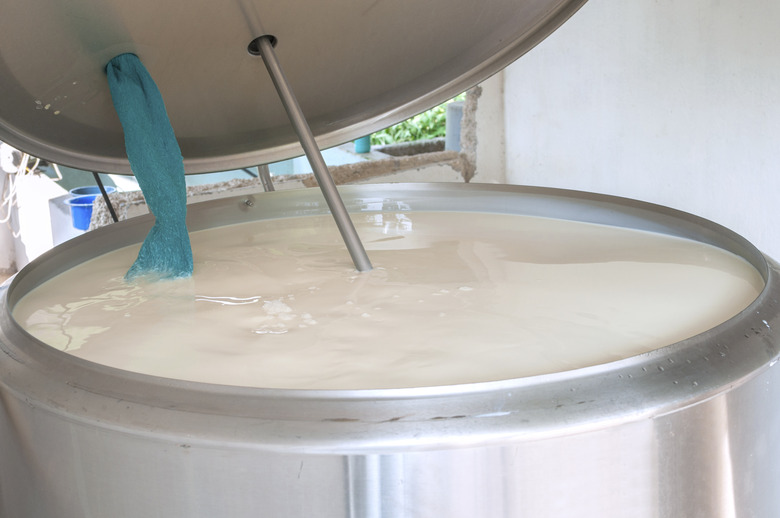Nutrition Topics For Research Papers
Nutrition is a field of science that is constantly evolving. For example, in the 1980s, the fat-free craze made fat the enemy of the decade. Now we're being urged to come full circle, replacing skim milk with full-fat milk and throwing over margarine in exchange for butter. Due to these constant shifts in the perception of what is healthy and what isn't, nutrition offers many interesting topics for research.
Comparing Ancestral Diets
Comparing Ancestral Diets
Your paper could compare and contrast the philosophies behind different ancestral or traditional diets. These diets are based on the belief that we are healthiest when we eat close to what our ancestors ate. The idea comes from seeing how early humans evolved to eat certain things. For instance, the paleo diet (short for paleolithic), or "caveman diet" as its sometimes called, eschews all grains and dairy, while the Weston A. Price Foundation diet emphasizes raw dairy, fermented foods and organ meats.
The Politics of Milk
The Politics of Milk
It is a federal crime to transport raw milk across state borders. Small dairy farms have been fighting to protect their rights to sell unpasteurized (or raw) milk products to consumers. In the U.S., the sale of raw milk is legislated on the state level. You could research the history and contemporary trends of raw milk legislation in the U.S. or in your own state. Investigate how we went from a raw-milk-consuming culture to the mandatory pasteurization of dairy. Your paper could compare and contrast the health benefits of both, as well as the risks.
Properly Preparing Foods
Properly Preparing Foods
Grains, nuts and legumes all have naturally-occurring high levels of phytic acid, an anti-nutrient that depletes the absorption of other minerals in your body, according to nutrition author, Amanda Rose. Ancient people knew how to prepare grains, nuts and legumes in order to neutralize the acid, thus making them easier to digest. The neutralization involves soaking, sprouting or souring, and sometimes more than one process. Your paper could focus on the phytic acid levels in different foods and compare the levels once they have been soaked, sprouted or soured. You could also explore the processes that are most efficient for eliminating anti-nutrients. You could look at the cultures that have employed these methods and determine if there are prepackaged goods that have been prepared to eliminate phytic acid.
Pros and Cons of Soy
Pros and Cons of Soy
Soy is now found in many processed and packaged food and has been assimilated in various forms to "make healthier" versions of milk, cheese and yogurt. However, scientists are debating the health benefits of this bean and you could research some of the findings on soy and nutritional health. For example, your paper could focus on soy infant formula, soy milk and hormonal health in women, or the federal subsidization of the soy bean over other crops.
Cite This Article
MLA
Janney, Parker. "Nutrition Topics For Research Papers" sciencing.com, https://www.sciencing.com/nutrition-topics-for-research-papers-12747245/. 9 February 2011.
APA
Janney, Parker. (2011, February 9). Nutrition Topics For Research Papers. sciencing.com. Retrieved from https://www.sciencing.com/nutrition-topics-for-research-papers-12747245/
Chicago
Janney, Parker. Nutrition Topics For Research Papers last modified March 24, 2022. https://www.sciencing.com/nutrition-topics-for-research-papers-12747245/
